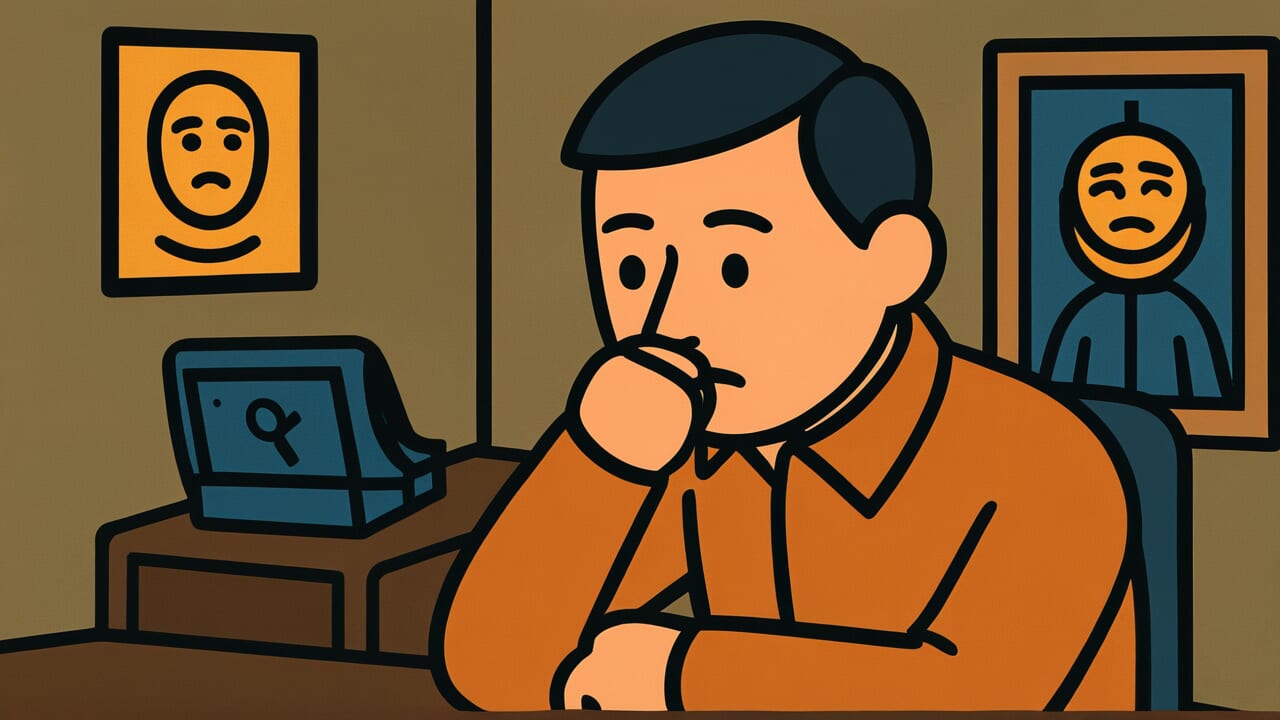How to Read “A noble person is careful when alone”
Kunshi wa hitori o tsutsushimu
Meaning of “A noble person is careful when alone”
This proverb teaches that a person of good character should be careful about their actions even when no one is watching.
When others are around, people naturally try to behave properly. But what really matters is whether you can act correctly when you’re alone and no one is monitoring you.
A truly noble person doesn’t do good deeds because they worry about others’ opinions or criticism. They live according to their own conscience.
This proverb is used when discussing self-management and inner cultivation. It’s often quoted when talking about personal growth and moral living.
Today, it serves as a warning against cutting corners or breaking rules just because no one is watching. True character shows not in how you behave in public, but in what you do when alone.
This proverb contains a deep insight about human nature and integrity.
Origin and Etymology
This saying likely comes from the “Great Learning” chapter in the ancient Chinese text “Book of Rites.” The original text reads “A noble person must be careful when alone.”
The word “alone” here has deep meaning. It doesn’t just mean “being by yourself physically.” It refers to your inner world that only you know about.
It means the realm of your heart where others’ eyes cannot reach. In other words, it points to moments when you face yourself alone.
In Confucian thought, a “noble person” means an ideal character who has studied and accumulated virtue. A true person of character doesn’t behave correctly just because others are watching.
They can act according to their inner conscience even when no one sees them.
This teaching came to Japan and deeply influenced the samurai spirit and Japanese moral values. It connects with the Japanese expression “the sun is watching.”
This proverb symbolizes Eastern ethics that values internal discipline over external surveillance. It has been passed down through generations as such.
Usage Examples
- He picks up trash in the park early in the morning when no one is around. He truly embodies “A noble person is careful when alone.”
- Remembering “A noble person is careful when alone,” I work diligently even when working from home without slacking off.
Universal Wisdom
Why does a person’s true nature emerge when no one is watching? Because when external pressure from others’ eyes disappears, the real values and desires inside a person surface.
This proverb sees through this essence of human nature.
We are social creatures. We constantly think about how others see us and adjust our behavior accordingly. This is natural as a survival strategy.
But it also has an aspect of “acting.” However, the moment we’re alone, that acting becomes unnecessary. Only then does a person’s true self appear.
This proverb has been passed down for thousands of years because this duality of human nature is a universal truth. In any era or culture, people can play “the good person” in front of others.
But the wisdom that truly trustworthy people should be judged by their actions when no one is watching never changes across time.
Thinking more deeply, this proverb also teaches that “you should be your own strictest judge.” Your conscience should have stricter standards than others’ eyes.
This is a hopeful view of humanity that believes in human dignity and autonomy.
When AI Hears This
In quantum mechanics, particles like electrons exist in a wave-like “superposition state” when not observed. But the moment you measure them with a detector, they fix to one location.
The act of observation itself changes the state of the object.
Human behavior has a similar structure. When there’s “observation” through others’ gazes, we converge into one state of socially desirable behavior.
But when we’re alone—when we’re not observed—our true nature exists in an expanded state. Like the “cloud of possibilities” that quanta have before observation, humans also unfold their possibility space of true character when alone.
What’s interesting is that the “true form” of quanta exists in the wave function when not observed. Similarly, human reality dwells not in the persona we perform in front of others, but in our behavior when no one is watching.
This proverb emphasizes being “careful when alone” because it recognized that the unobserved state is the essence.
Quantum mechanics teaches that observation changes the object but doesn’t erase it. If you cultivate yourself when alone, your observed self naturally becomes defined too.
This order of causation matches between ancient wisdom and modern physics.
Lessons for Today
What this proverb teaches modern you is that your true value is built in moments when no one is watching.
Actions to get “likes” on social media or performances for evaluation might be important. But doesn’t living only for that exhaust your heart?
What truly matters is living in a way that doesn’t betray yourself when you’re alone.
When working from home with no one watching, can you keep your promises? Can you return money you found? Can you avoid small dishonest acts that no one would know about?
These moment-by-moment choices shape who you are as a person.
This isn’t a harsh teaching demanding you become perfect. Rather, it’s a gentle encouragement to face yourself honestly and grow little by little.
People who can value themselves even when no one is watching are truly free. They can live according to their own conscience without being swayed by others’ evaluations.
Starting today, cherish the small choices you make when alone. As they accumulate, they will build you into a person with unshakable confidence and character.



Comments